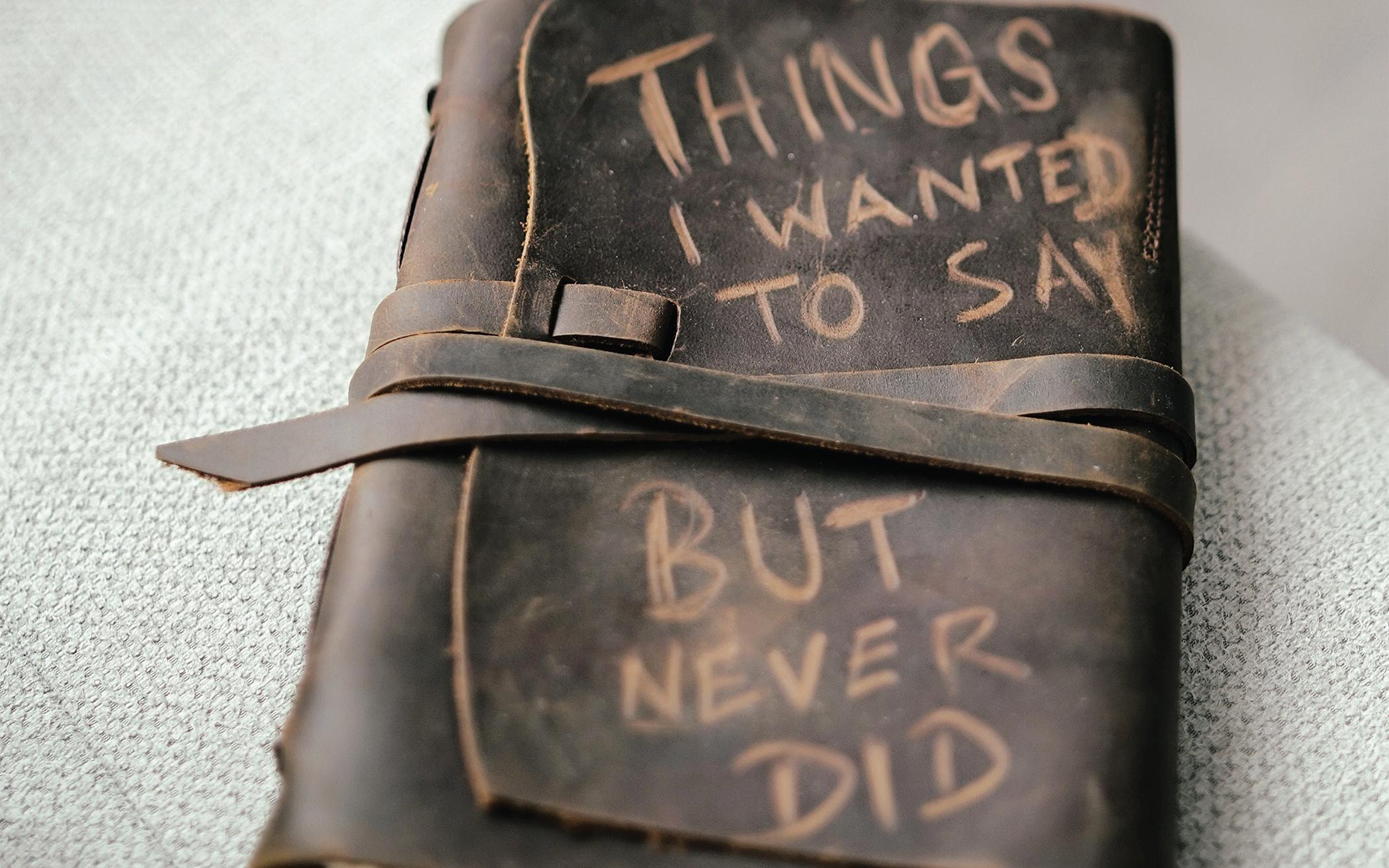Not long ago, when I worked as a reintegration chaplain with men leaving prison, I would often talk about my work in local churches and schools. I could count on a few people to come up afterward to say, “I’m so glad you’re doing that work. It’s so important for some of us to do.”
Those comments always grated on me.
I know people mean well. Most wanted to compliment me on what they see as valuable work. But three words always stuck out to me: some of us. Implicit is the idea that some of us are called to the work of justice and solidarity, but the rest of us are not.
I see this dynamic at work on our campus as well. Justice seeking is for students in the social justice club or the creation care group. It’s one pursuit among others that we can take or leave as we please.
That attitude is hard to square with the biblical witness.
The prophet Micah summarized life with God as “to act justly and to love mercy and to walk humbly with your God” (6:8). All three—justice, mercy, and humble pilgrimage with God—make up the life of faith. Isaiah characterized faithful action as “to loose the chains of injustice and untie the cords of the yoke, to set the oppressed free and break every yoke” (58:6). The apostle Paul, in his letter to the Christians in Rome, described God’s kingdom as justice and peace and joy in the Holy Spirit (Rom. 14:17). And Jesus himself told the Galilean crowds that those who hunger and thirst for justice will be filled.
Clearly the pursuit of justice is not an optional hobby for God’s people but a basic commitment. So why do we fall into the trap of thinking that justice is only for some of us? Is it because we’re not convinced that justice is all that important? Maybe. But my sense is that most of us know that justice is important, even basic, to our faith. I wonder if it’s not so much that we think justice is unimportant but that it’s intimidating.
“Doing justice” is often associated with dramatic, public acts of truthtelling and confrontation: Desmond Tutu calling out discriminatory policies in apartheid-era South Africa; Rosa Parks refusing to give up her seat to highlight unjust racial policy; Dr. King’s historic 1965 march from Selma to Montgomery; climate activist Greta Thunberg speaking at the United Nations.
Actions like those are an important part of what it means to do justice. But if justice seeking is as basic a part of our faith as the biblical authors lead us to believe, then there must be a more ordinary, everyday form of justice seeking for those of us not named Desmond, Rosa, or Greta. And maybe it is the ordinary, everyday practice of justice that empowers us for life’s more dramatic moments.
When the psalmists and prophets speak about justice, they often use two Hebrew words: tsedekah and mishpat. In English Bibles, those words are usually translated “righteousness” and “justice.” So in Psalm 33:5 we read, “The LORD loves righteousness and justice; the earth is full of God’s unfailing love.” Or, from the prophet Amos, “But let justice roll on like a river, righteousness like a never-failing stream!” (5:24).
Tsedek means rightness, that which is as it ought to be. And mishpat is what needs to be done in a given situation if things are to be restored to tsedek (rightness) so that everyone can flourish. They are deeply relational words, rooted in the loving God’s covenant relationship with God’s people. The Old Testament scholar Christopher Wright says justice is “essentially relational and covenantal.”
For the biblical prophets and psalmists, to do justice is a deeply relational act. Making space for everyone to flourish is not just about providing the material goods necessary for people to flourish. Neither is it about creating a perfect system of government or engineering the ideal city. It is about restoring broken relationships so that things are made right. Biblical justice is a justice that restores. That could be why the apostle Paul, who was steeped in the words of the prophets and the psalms, called Jesus Christ “the justice of God.” Jesus is the One who restores what is broken so that all may flourish.
As justice seekers in the biblical tradition, we are prompted to ask: What relationships are broken, and what can we do to repair them? When a few people in a community hold most of the wealth and a great many others live in poverty, then the economic relationships that tie us together are broken. What can we do to repair them? When parents do not feel safe letting their children play in the street because of violence in their community, then our social ties—neighbor to neighbor, citizen to citizen, community to government—are broken. What can we do to repair them? When women cannot pursue their God-given callings at work or in political life simply because of their gender, that is a sign that relationships are broken and need fixing.
In summary, for God’s people justice is making sure everyone has what they need to flourish; this is accomplished by repairing those broken relationships that are hindering God’s shalom.
Shedding Light on What Is Broken
If biblical justice is a movement that restores broken relationships, then our pursuit of justice is as much about everyday acts of courage and conviction as it is about those dramatic—and intimidating—moments of history. Justice is all about relationships, and what else is everyday life made of but our relationships as children, friends, parents, students, coworkers, and fellow citizens?
Restoring that which is broken begins with actually recognizing that things are broken. To heal a broken arm, we need to determine what bone is broken. To heal the broken relationships that stop us from flourishing, we need to shed light on what is broken.
How do we do that?
We don’t need to start by organizing a global protest march or running for elected office (though that may be necessary too). We can start by “making it awkward.” I know a local tradesman who would never call himself an activist. I doubt he’s ever spoken up at a city council meeting or written a letter to the editor. But if he hears a coworker speak crudely about women, he confronts them directly and publicly. If he hears a friend speak ignorantly about Canada’s Indigenous communities, he is willing to stop that friend and challenge her assumptions.
He is willing to “make it awkward” in everyday conversations, to expose in small ways how relationships between men and women and between settler and Indigenous communities are broken. It’s a small thing, but it’s a courageous step toward a more just world.
Another way to shed light on injustice is the simple act of saying no. When Christians in the Clapham parish of south London found out about the pervasive injustices of the human slave trade in the 19th century, they got angry. They responded, in part, by publishing lists of companies who were profiting from the trading of human beings and by encouraging fellow churchgoers to boycott those companies. South Africans acted similarly in the 1980s and early 1990s by encouraging citizens around the world to divest from companies profiting from racially unjust public policy in their homeland. Students regularly tell me about their refusal to support companies who exemplify the broken economic and social relationships of our fallen world: oil companies who profit from the destruction of the created world; mining companies who subject their workers to dehumanizing conditions; T-shirt companies whose advertising turns young girls into sex objects.
Sometimes we can expose injustice simply by putting one foot in front of the other. The Movimiento por la Paz con Justicia y Dignidad (or Movement for Peace with Justice and Dignity) began in central Mexico when the poet Javier Sicilia’s son was killed by a drug cartel. He was one of thousands of Mexicans killed or gone missing during the “war on drugs.” Sicilia and his friends began organizing small marches in public squares. Those small marches became large marches—some with over 200,000 participants—to make public what was otherwise pushed aside. Sicilia’s movement has been instrumental in creating a grassroots movement for change in a situation otherwise marked by fear and despair. And it all started with the ordinary act of walking in public with friends.
Making things awkward, saying no with our wallets and our voices, putting one foot in front of the other—such actions don’t require the voice of Oscar Romero or the dedication of Dorothy Day. These are ordinary acts of justice, exposing broken relationships so we can work for something better.
Making Things (a Little More) Whole
Shedding light on our world’s brokenness is one part of doing justice. The other is joining the Holy Spirit’s work of restoring what is broken, following in the footsteps of the Carpenter and Healer who spent a good deal of his time making broken things whole.
Again, restoring what is broken can look pretty ordinary.
One tragic aspect of our broken world is that some voices get heard more easily than others. Where I live in western Canada, the voices of Indigenous men and women, the voices of newcomers, and the voices of women have all been pushed to the margins at one point or another in our history. How can we even start to make things right?
Teachers have been showing me one very simple way forward in their classrooms. Every day, creative teachers raise voices that have previously been silenced. By reading picture books by Indigenous authors, telling the stories of female nation-builders that our history textbooks have ignored, or assigning novels by authors from underrepresented communities, teachers make broken relationships a little more right by exposing their students to voices of fellow image-bearers they may not otherwise hear.
Sometimes making a broken relationship right is a matter of church real estate. Near my home in Edmonton, Alberta, a Presbyterian church recently decided that it simply did not make sense for its shrinking congregation to use the large church property only for Sunday services and the occasional outreach dinner. At the same time, a small group of women in the congregation had befriended newcomers to Canada through refugee sponsorship. The church put two and two together and decided to transform its church property into a beautiful housing complex for newcomers.
This church had a Christ-inspired vision of a more welcoming world where all people have what they need to flourish—in this case, a safe, affordable home. And so they did the tedious work of securing work permits, applying for zoning changes, and going door to door to convince their neighbors that this new housing complex would be a good thing for the neighborhood. The work was long and often boring. It did not garner a lot of praise or media attention, and the names of the churchgoers will not make it into many history books. But their ordinary actions helped to right a host of wrongs—war, displacement, and exclusion. It is precisely the sort of ordinary, everyday justice seeking that Psalm 33 tells us God loves.
Theologian Gustavo Gutierrez has said that his journey toward justice is animated by one question: How do we tell the poor (or the forgotten, excluded, and pushed aside) that God loves them in a world that feels like a negation of love? His response—and ours—is to “let justice flow” in ordinary, everyday ways. When we do, we are telling people who are poor and those who are downtrodden or excluded that God does love them—not through empty words, but by helping to build a world that no longer feels like a negation of love. That is why Cornel West says that “justice is what love looks like in public.”
The call to do justice can feel intimidating, but it doesn’t have to. Doing justice may mean doing something extraordinary, like confronting a corrupt politician, decrying an unjust law, or protesting a tone-deaf government. But it may also be as simple as having an awkward conversation with your uncle or going to a different section of the library to find some new authors for your child.
It will certainly mean praying fervently that the God of justice and righteousness be present among us in new and startling ways as we make justice a part of our daily walk of faith. And as we pray, we can let activist Daniel Berrigan’s words keep us accountable: “And then there is the question of prayer, which consists for the most part in insisting that God do for us what we are unwilling to do for one another. Resolve: Let’s do for one another what we would have God do for all. This is known as God-like activity.”
Discussion Questions
- What first comes to your mind when you hear the phrase “doing justice”? Why?
- If “justice is making sure everyone has what they need to flourish” by “repairing those broken relationships that are hindering God’s shalom,” what are some signs or markers of God’s shalom or human flourishing?
- How may we speak the truth in love during those awkward conversations so that we not only act justly but also show mercy?
- What ordinary work of justice will you commit to doing this week?
About the Author
Jonathan Nicolai-deKoning is the director of the Micah Centre, a justice, anti-poverty, and global citizenship initiative at The King’s University in Edmonton, Alta. He is a Christian Reformed pastor and a member of Fellowship CRC






